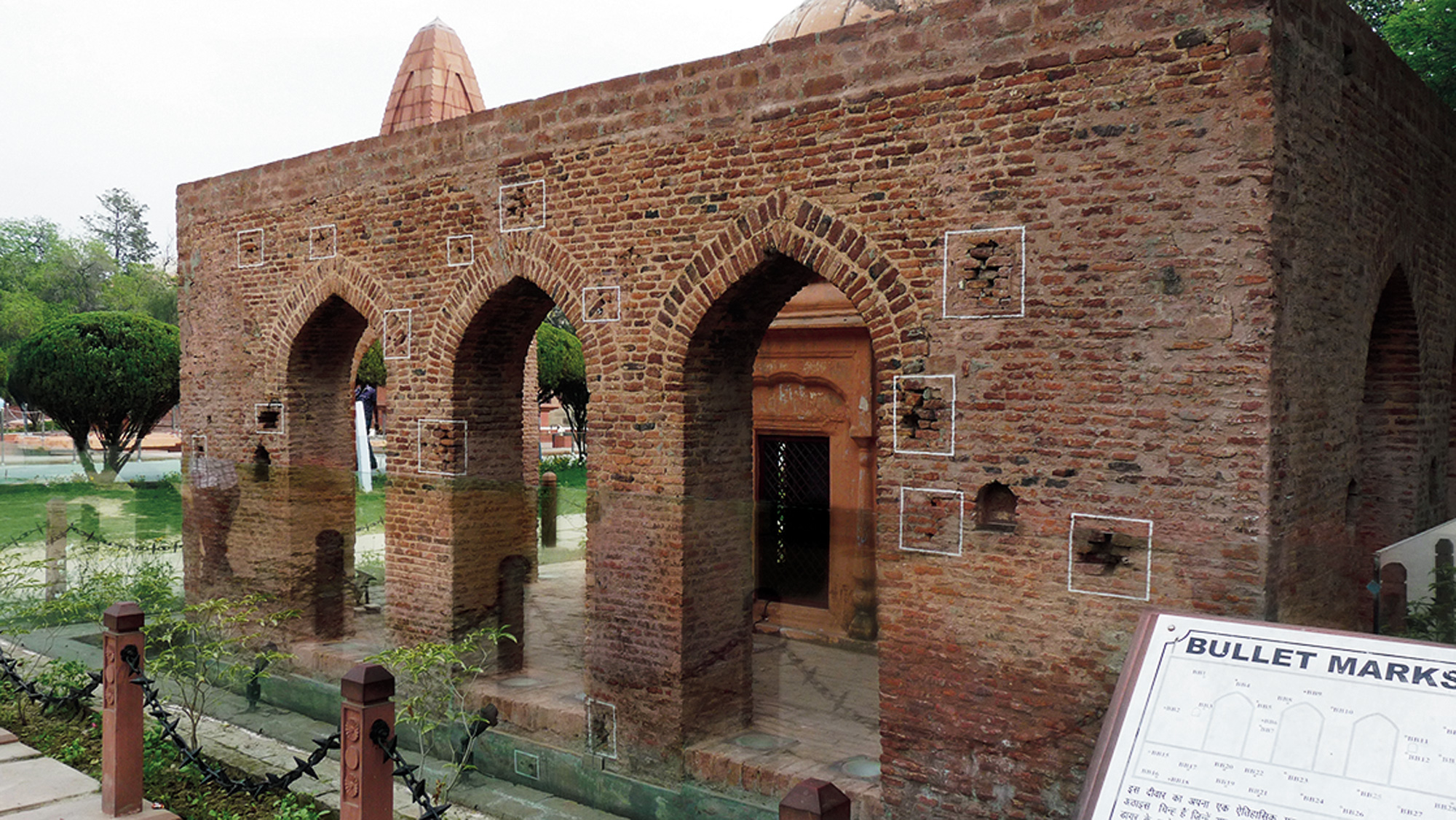Labour peer and economist Meghnad Desai, who unveiled a dramatic painting depicting the Jallianwala Bagh massacre, has said that Theresa May’s statement on the atrocity “whilst not a full apology is a step forward”.
Desai, who has been a professor at the London School of Economics and supervised many PhD students, told The Telegraph: “I give her 60 out of 100, which is a good upper second — 65 is a First.”
That is indeed high praise for Britain’s beleaguered Prime Minister, who has been battered by Brexit, mostly it has to be said by MPs from her own side.
Desai was speaking on the 100th anniversary of the massacre, having unveiled a “beautiful painting” by the Singh Twins, Rabindra and Amrit, at Manchester Museum.
He and a crossbench peer, Raj Loomba, had written to the Prime Minister arguing that it was now time for the British government to offer a full apology.
“Who cares if a minister says something in Westminster Hall?” Desai said dismissively.
This was a reference to comments made by foreign office minister Mark Field in a committee room just off Westminster Hall during a debate initiated by the Tory MP for Harrow East, Bob Blackman, on April 9.
Field, who said he found the speeches by MPs from all parties in support of an apology “very, very compelling”, said he would pass on their sentiments to both the Prime Minister and the foreign secretary, Jeremy Hunt.
He admitted he himself could not offer a formal apology but added that “we perhaps need to do a little more than even the very deep regrets that I have set out today”.
Speaking in the Commons the very next day, May made a statement on the massacre: “The tragedy of Jallianwala Bagh in 1919 is a shameful scar on British Indian history. As Her Majesty the Queen said before visiting Jallianwala Bagh in 1997, it is a ‘distressing example’ of our history with India. We deeply regret what happened and the suffering caused. I am pleased that today the UK-India relationship is one of collaboration, partnership, prosperity and security. Indian diaspora make an enormous contribution to British society, and I am sure the whole House wishes to see the UK’s relationship with India continue to flourish.”
Desai gave due credit to May: “It is significant she made a statement at the despatch box at the House of Commons. A full apology is going to take time.”
For most people in Britain, what happened in Jallianwala Bagh has come as a revelation. That the anniversary was being marked in Amritsar was mentioned in the main BBC Radio 4 news bulletin at 9am on Saturday.
Among MPs who have pressed May for a full apology is the Labour MP for Ealing Southall, Virendra Sharma, who explained: “An apology has to include the words ‘apology’ and ‘sorry’.”
He said it was his intention to seek to table a motion on Jallianwala Bagh in the Commons on which all MPs would be required to vote.
Meanwhile, in a leader comment, The Guardian noted what May had said about the massacre and said: “It is rare for a Conservative Prime Minister to express regrets for any aspect of British imperial history. So the fact that Mrs May said anything at all was noteworthy: first, as a sign of continuing official unease at the highest level about the events of 1919 and, second, as a recognition of the effect the massacre still exerts on the British-Indian relationship to this day.”
The paper also referred to the statement by the Labour leader Jeremy Corbyn, who followed May by telling the Commons: “I am very pleased that the Prime Minister mentioned what happened in Jallianwala Bagh and the issues of the massacre at Amritsar 100 years ago. I think that the people, in memory of those who lost their lives and the brutality of what happened, deserve a full, clear and unequivocal apology for what took place on that occasion.”
The paper said: “Mr Corbyn’s response was significant too. By using the word ‘apology’ he went further than any British leader has yet been willing to go.”
“The reluctance to apologise has many strands,” The Guardian continued. “They include concerns about precedent, legal consequences and claims for reparations. But the reluctance to look back dispassionately, understandable in some respects, is a national burden. It means Britain can fail to face historical facts, question ourselves as a modern nation and think about complexity. It can mean we fail to see ourselves as others see us. These are enduring issues, which cannot be brushed aside just because they are sometimes exploited opportunistically.”
It said that some other countries, such as Germany and Belgium, were better at this self-examination. “Britain lacks a shared or a sufficiently capacious version of its own history. Too many are not taught enough of it to make this possible. Outside the academy walls, and sometimes within them, the treatment of history can be too politicised, nationalistic and Manichean. The result is that we don’t think properly or even know about events like Amritsar. But the result is also Brexit.”











